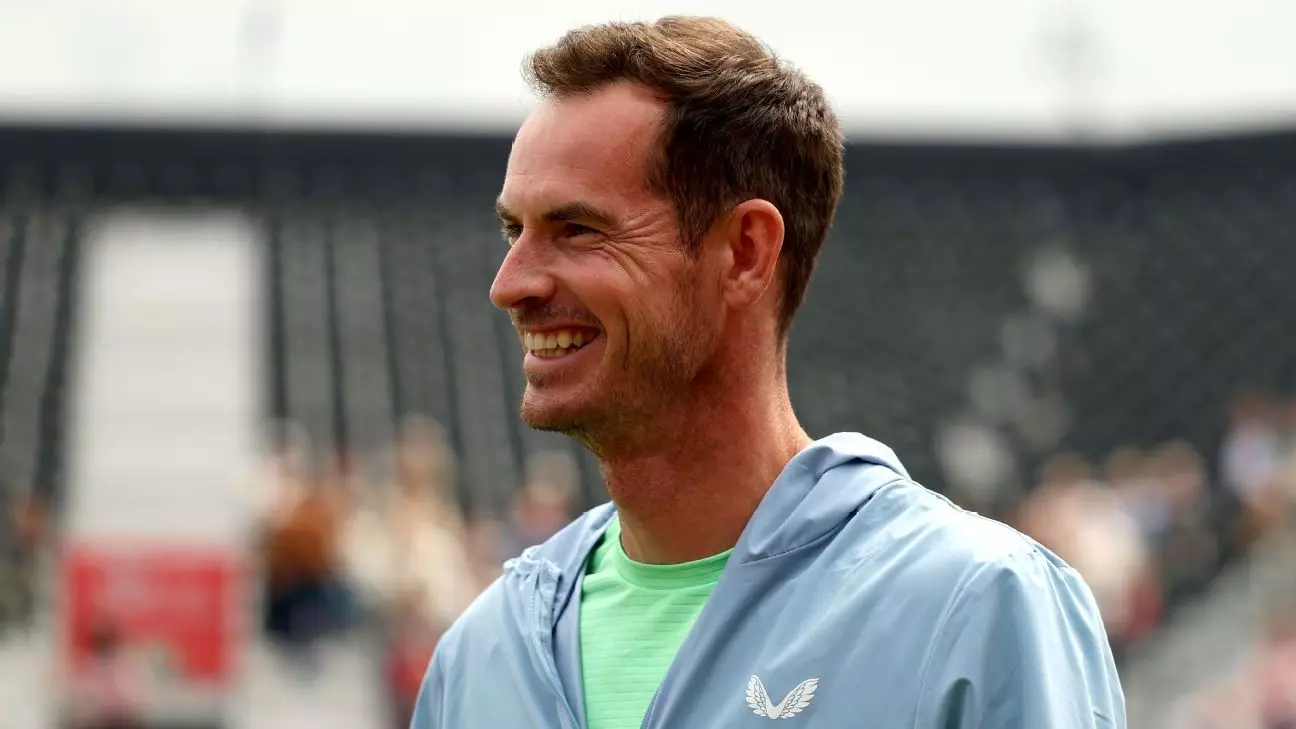Andy Murray, the former world number one tennis player, has recently ignited discussions about a possible return to the coaching scene following his short-lived collaboration with Novak Djokovic. After their six-month partnership came to a close, Murray expressed that while he’s not rushing back into coaching, he remains open to the idea down the line. This transition from competitor to mentor is not merely a shift in role; it’s a chance for Murray to channel his vast experience and insights into nurturing the next generation of tennis players.
Murray’s engagement with Djokovic at various prestigious tournaments, such as the Australian Open, offered him a unique viewpoint into the world of professional tennis from a different angle. The opportunity to work alongside one of the sport’s all-time greats afforded Murray invaluable lessons and moments away from the court that shaped his understanding of athleticism and strategy. His reflections on this experience reveal a profound appreciation for personal growth and camaraderie, something that is often overshadowed in the hustle of athletic competition.
The Learning Experience
Coaching is an art that necessitates a blend of knowledge, patience, and emotional intelligence—skills that Murray has cultivated over his long career. By analyzing his time with Djokovic, we see a microcosm of a broader coaching philosophy. Successful coaches not only impart skills but also help shape attitude and resilience, crucial components for any athlete. Given Murray’s storied history of overcoming injuries and setbacks, he bears a living testament to the mental fortitude required in sports. Hence, it’s not just his tactical knowledge that makes him a candidate for a coaching role; it’s his lived experience of both triumph and adversity.
However, Murray’s reluctance to dive into coaching immediately suggests a thoughtful approach to this calling. By prioritizing his personal adjustment post-retirement, Murray is setting a reflective tone that contrasts sharply with the pressures that often accompany professional sport. As he spends more time on the golf course—a realm where he can revel in a slower pace—his openness to return to tennis coaching indicates a healthy balance between personal fulfillment and professional ambition.
Engaging with the Next Generation
Murray’s recent playful encounter with young athletes during a ceremonial tennis event indicates his willingness to stay connected with the sport. While humorously critiquing his own skills as “diabolical,” he remains a vibrant figure in tennis culture, demonstrating that even in post-retirement, the passion for the game endures. These interactions serve as a reminder that the essence of sports lies not only in competitive success but also in mentorship and fostering love for the game among the youth.
Therefore, the idea of Murray returning to coaching transcends mere speculation; it embodies the potential of a champion who continues to inspire both on and off the court. As he navigates this new chapter of his life, Murray has the tools, both personally and professionally, to become a transformative figure in tennis coaching, revitalizing the passion he has cultivated over decades. Whether or not he dives back into coaching soon, the possibility is certainly an exciting prospect for tennis aficionados worldwide.

